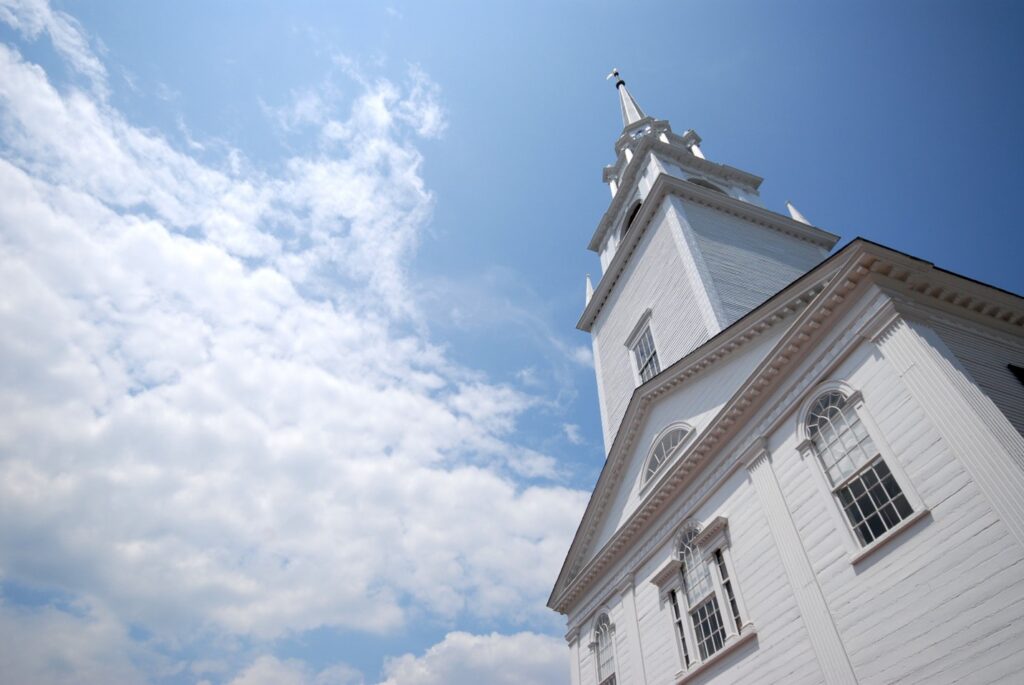
By M.H. Cavanaugh
Christian Action League
May 12, 2022
Tuesday evening, the City of Oxford’s Commissioners approved an ordinance for a “Social District” that will cover 10 acres of downtown Oxford. The meeting room was filled with proponents and opponents of the proposal. Proponents were clearly in the majority and vigorously applauded the Board’s vote, while opponents left the meeting sorely disappointed with their town’s leadership.
A Social District is a new provision in North Carolina law that allows cities and towns to designate areas where alcoholic beverages may be purchased, and patrons may stroll throughout the area with an open container. They can even take their alcoholic beverages inside a store within the district, as long as the establishment agrees to be a participant.
Before the legislature approved Social Districts in HB 890 – ABC Omnibus Legislation, drinkers were required to imbibe within the licensed premises where the alcohol was purchased.
Claiming to have done extensive research, the city’s Department of Economic Development Corporation (DOEDC) brought the recommendation for a Social District before the Board of Commissioners. Commissioner Bryan Cohn presented and explained the proposal to fellow commissioners and citizens. The DOEDC’s president, Pierre Gingue, followed up with a report about the alleged success of Social Districts already approved in other cities and urged commissioners to approve one for Oxford.
According to the DOEDC, Social Distracts offer a broad social and cultural experience for residents and visitors, an opportunity for increased tourism, and increased dollars spent in stores and eateries as people stay longer to shop or dine downtown. They encourage business growth.

During the public hearing, supporters of the recommendation who represented various business interests spoke in favor of the ordinance. Their comments primarily reflected the same points asserted by the DOEDC.
Rev. Mark Creech, executive director of the Christian Action League, who concerned citizens invited to attend the meeting and speak against the measure, said the comments by those who favored the proposed district were misguided at best and farcical at worst.
Phil Dixon, who favored the proposal, spoke about HB 890, which passed with strong bipartisan support in the state legislature. He said, “If our elected officials thought it was a bad idea, do you think they would have passed the bill? I don’t think so; they passed it because it’s a good idea.” Dixon implied that opponents were too emotional and unwilling to consider the facts of the matter.
Caleb Wells, who lifted his sleeve to show a small tattoo of a Christian flag on his bicep, said he was a professing Christian and a member of the craft beer community. Wells said he believed that people didn’t have to sacrifice their “Christian moral values” because if you wanted to have a party, he thought that Jesus would bring the wine. “Cheers!” he concluded. Wells’s remarks were enthusiastically applauded and cheered by proponents.
Before the meeting, Rev. Creech had sent a letter by email to each Oxford Commissioner, in which he explained in bullet points the downside of Social Districts. In summary, his letter said:
- Social Districting is not inclusive of all members of the community. Instead, it is mainly for those who drink and is not sensitive to those who don’t, can’t, or disapprove of drinking. Places that at one time every citizen felt free to access will become practically limited or off-limits to them because they disapprove of drinking and its pervasive presence on the street and in the shops.
- Social Districting will precipitate alcohol-related crimes. Wherever alcohol is permitted for extended periods, there are inevitably adverse alcohol-related incidents. This cannot be avoided because of the inherently problematic nature of alcoholic beverages.
- Social Districting puts businesses outside the district’s parameters at a competitive disadvantage to those within the district. A Social District generates an unfair business disparity. Some businesses will fare better than others because they are inside the district, and customer traffic is being drawn to them and away from other businesses not in the district.
- Before legislation passed for the Brunch Bill in 2017 and HB 890 last year, every question concerning alcohol sales in the state was left to voters at the ballot box. But now, local option alcohol referenda are being bypassed on questions relating to alcohol and business interests because proponents know it is always much easier to gain the votes of a few councilmen than a majority vote in the City or County. Therefore, many times the actual sentiments of the community are not gauged and represented.
- Social Districts will be progressive as most alcohol policies increase in scope. Business interests usually present such proposals as limited and restricted, but it rarely stays this way. Eventually, commerce makes an effort to expand the privilege for additional opportunities to make more money, no matter if evidence shows it results in high social costs.
Creech argued that HB 890 was a historic loosening of alcohol controls in North Carolina in his speech to commissioners. He said the bill that passed contained 30 different provisions of significant reforms. “Alcohol legislation is some of the most complex lawmaking legislators deal with,” said Creech, and “there is no possible way legislators could have sufficiently considered the measure’s potential to impact public health and safety negatively. Unfortunately, it was a giveaway to the state’s relatively new breweries, distilleries, and other alcohol and business interests.”
Moreover, Rev. Creech urged Commissioners not to take comfort in reports that no rise in alcohol-related incidents had occurred in places where Social Districts were approved. “It can take a long time, as much as ten years, before a community can adequately discern a new alcohol policy’s real effect,” he said.
Creech concluded by encouraging Commissioners to hold an additional hearing so that all of the community could be better informed. He called upon them to slow down.
In their statements, opponents who were Anti-Social District made it clear they were for progress in Oxford, but didn’t believe Social Districts were the right way to achieve it. Some declared their concerns about the policy’s effect on the community’s children, especially the subtle message the community would be sending that drinking is something positive and productive.

Thomas Blackwell charged the policy would unquestionably favor the participating businesses over those who chose not to participate for religious or other reasons. Furthermore, he said he had heard nothing about how the rules would be enforced. “I think everyone in this room can agree that setting rules do not mean that people follow the rules. The only real suggestions that I have heard are signs and more trashcans, and I’m not sure that’s gonna do it,” said Blackwell. “I really hope we are not looking at this through rose-colored lenses. The only thing I have heard from all of the ‘extensive research’… I’ve not heard many numbers… I’ve just heard people seem to litter more.”
Blackwell said if people were honest with themselves, they would have to admit there was much more to be considered which wasn’t being addressed.
Lynn Currin raised concerns against the policy because two of her family members were killed by drunk drivers.
Johnny Russell said his wife owned a business in the proposed Social District, and if the initiative passed, he and his wife would likely take their business out of town.
The Grassy Creek Baptist Church pastor, Rev. Cameron Currin, spoke in opposition on behalf of the Granville County Chapter of the Christian Action League.

Currin said that even though drinking had become more acceptable today, many people in the community disapproved of it and were offended by it. While the planned Social District did not include churches within it, churches were still on the outside parameters, and drinking on the streets of Oxford would be an affront to them. “To do so on the Lord’s Day is an abomination to God Almighty,” he said.
Rev. Creech said he didn’t want to sound condescending, but he was very proud of how opponents spoke out against the proposed ordinance.
“They did not succeed, but they spoke the truth and pleased the Lord. Many don’t know that the Scriptures teach it is because of God’s elect that God shows favor to certain places, and the only reason at other times he doesn’t destroy them,” said Rev. Creech. “I’m telling you that it angers God when his people and their influence are marginalized.”
Creech added he hopes the Granville County chapter of the Christian Action League will collaborate and consider options that could be left to opponents to revisit the issue in the future.
